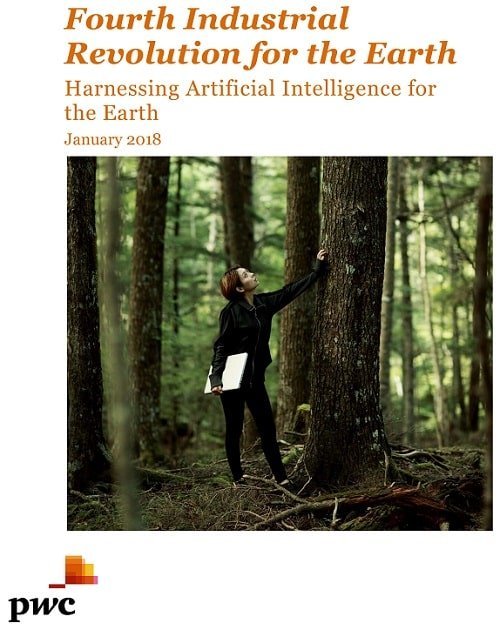
New WEF/PwC study records significant opportunities for innovation and investment
AI can radically change the way society deals with climate change
AI unguided poses short and long term risk if not deployed responsibly
A new study from PwC and the World Economic Forum examines how AI can help transform how society addresses climate change, delivers food and water security, reduces risk from disasters, protects biodiversity and bolsters human well-being.
“Harnessing Artificial Intelligence for the Earth”, examines how AI can be put to work for the planet’s greatest environmental challenges.
The study is the latest in a series of reports from the World Economic Forum’s Fourth Industrial Revolution for the Earth initiative, designed to accelerate progress of the development and use of emerging technology to benefit environmental challenges.
The report focuses on the use of AI in the context of six critical global challenges: climate change; biodiversity and conservation; healthy oceans; water security; clean air; weather and disaster resilience.
In the six priority action areas, over 80 emerging AI applications for Earth challenges are examined and identified in the study include:
- Climate change: smart agriculture, nutrition and food systems; optimised energy grids; autonomous and connected electric vehicles; climate and weather modelling
- Biodiversity and conservation: pollution control; plant species identification; precision monitoring of ecosystems; illegal trade monitoring and response
- Healthy oceans: robotic fish to fight pollution, real time monitoring of ocean temperature and PH; coral reef mapping; illegal fishing monitoring and response
- Water security: simulations for drought planning; drones and AI for real time monitoring of river quality: streamflow forecasting; decentralised water grids
- Clean air: pollution forecasting for transport management and early warning; air pollutant source detection; air pollutant filtration
- Weather and disaster resilience: improved early warning systems for weather and disaster resilience; automated mitigation of flood risk; real time risk analytics for first responders.
The report warns that, although AI presents transformative opportunities to address the Earth’s environmental challenge, if left unguided it also has the capability to accelerate the environment’s degradation.
Risks including performance, security, control, ethics, and socio-economic impact are explored in the report which recommends that to be sure that AI is developed and governed wisely, government and industry leaders must ensure sustainability considerations are integrated into the pressing fields of AI safety, explainability, transparency and governance.
The post Utilization of Artificial Intelligence for the protection of the environment appeared first on Cyprus Mail.